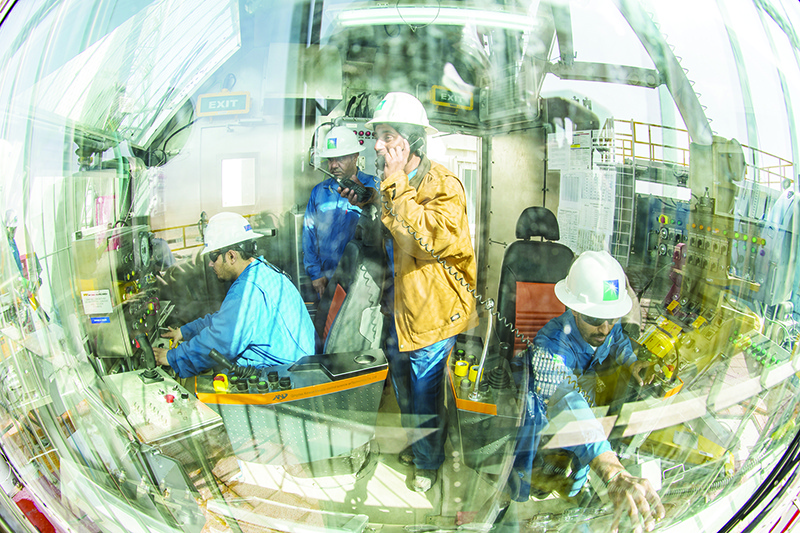
RIYADH/DUBAI: Saudi Arabia's austerity drive will squeeze a private sector vital to its plan to diversify away from oil and the kingdom may see its spending power shrink.
Several businessmen and economists said the tripling of value added tax (VAT) and suspension of a cost of living allowance for state employees could deepen a downturn in the Arab world's largest economy and delay job creation. The changes are set to ripple through most areas of business life, already struggling with weak demand due to a coronavirus lockdown, and weigh on living standards of ordinary Saudis. "I don't understand how this will help the private sector that is already hit by low demand," said a Saudi retailer, who requested anonymity to speak freely.
"People are already holding on to their cash and no one is spending at all." He said if business remains weak by the end of the year "I will have no other way than cutting jobs to minimize the cost".
Authorities had until now avoided steps affecting citizens directly, acutely aware that Saudis' ability to tolerate such measures is vital in a country without elections and where political legitimacy rests partly on distribution of oil wealth. While many Saudis have rallied around their leaders on social media, others posted pictures of late King Abdullah under the hashtag "livelihood", recalling a time of high oil prices and state largesse.
Crown Prince Mohammed bin Salman shook up the conservative kingdom in 2016 with an ambitious vision to wean the economy off oil income, create a thriving private sector and generate millions of jobs in new industries and mega projects.
"Double shock"
But low oil prices and the coronavirus have battered the finances of the world's largest oil exporter at a time when state spending remains its economic engine and large foreign capital inflows have proven elusive. Unemployment among Saudis stands at 12 percent.
Finance Minister Mohammed Al-Jadaan said the measures, including cuts to state operating and capital expenditure, were "painful but necessary". While Saudi bonds rallied as investors saw the measures as a sign Riyadh was ready to take tough steps to contain the deficit, business owners are bracing for more pain.
"Is this the right time? It is a disaster and now a double shock, the coronavirus impact was severe and now we guarantee business is down for a longer time," said a businessman in the construction sector.
Saudi Arabia's decision was likely based on the fact that the private sector still plays a marginal role, analysts said. "The farce of a strong Saudi private sector is put aside. There may be growth over the longer term, but the state was always going to guide that process," said Karen Young, resident scholar at the American Enterprise Institute in Washington.
The state encouraged Saudis to buy shares in oil giant Aramco when it went public last year. But since March they have been trading below the IPO price, frustrating many. "We have to support the government of course but I wish they made it (measures) gradual," said Fatima, a 24-year-old Saudi saleswoman.
"It was great to spend some extra money on cinemas, gym and dining and save for concerts, but now one has to be careful where to spend money," she said on activities only recently made available under social reforms in the conservative kingdom.
"The problem is these measures touch citizens … everyone's salary got cut by 10 percent," said a diplomat.
The economy is expected to shrink 2.3 percent this year versus 0.3 percent growth in 2019, according to the International Monetary Fund. Central bank foreign exchange reserves fell in March at their fastest rate in 20 years as the kingdom recorded a $9 billion budget deficit in the first quarter. Dubai-based economist Nasser Saidi said any additional revenues from the VAT hike would be negligible and the move will likely sharpen the recession.
"It would add an unnecessary shock to the system at a time when businesses are struggling to stay afloat, households are experiencing lower incomes and expatriates without jobs are returning home," he said. - Reuters




